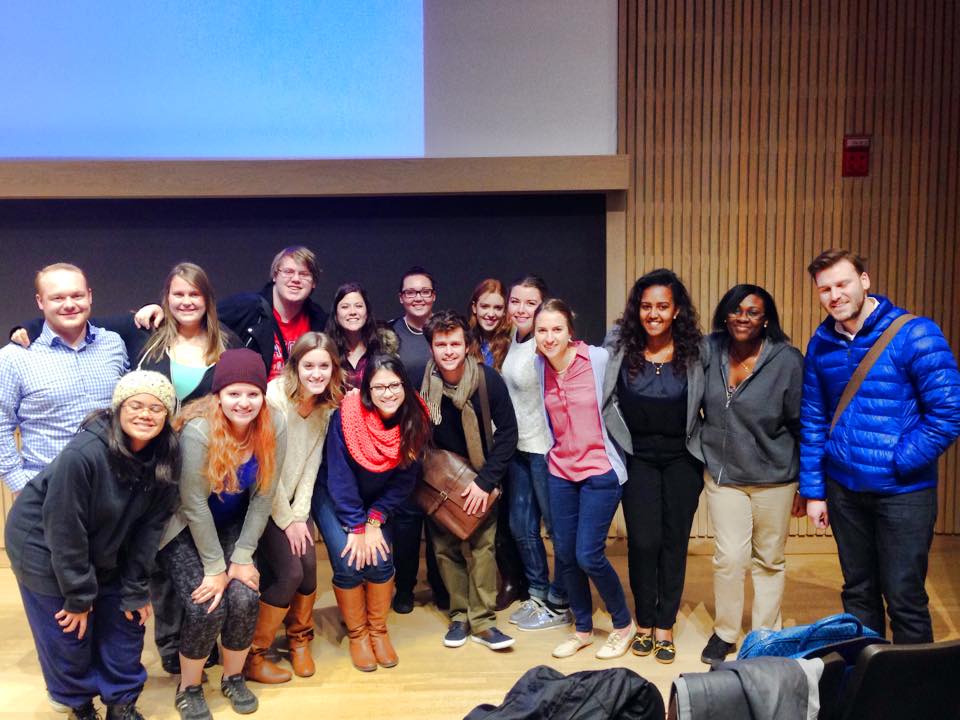TKC Mock Trial adjourns for the spring semester
The King’s College Mock Trial team has paused operations for the remainder of the Spring 2015 semester. After a season characterized by financial struggles and limited upperclassman involvement, the organization’s president, Grant Olson (’15), decided to forego the season’s regional tournament, which took place the weekend of Jan. 24, at Boston College. “We are not shutting the team down,” Olson said. “We just chose not to compete in the first regional tournament.” Only one regional tournament exists, however, and it's the first round of the official season: teams compete to advance to the Opening Round Championship Series, followed by the National Championship Tournament, which takes place in April.
The question that many are asking now is how a seemingly vital organization like Mock Trial could come upon such hardship. The answer to that question may shed light on the difficulties that surround King’s student org culture at large.
Historically, Mock Trial and Debate have been two of the strongest student organizations at King’s. Many prospective students identify these teams as prominent assets of the college. In fact, in recent years, all of the Founder’s Scholarship recipients have shared a strong background in speech and debate.
Back in Oct., during the pre-season, the team competed in the Colgate Classic Tournament and did quite well. A few members took home awards, including Olson, who received an “outstanding attorney” award, and Jessica Matthews and Katie Calvert, who received "outstanding witness" awards.
Olson told the Tribune that an error involving bus rentals proved to be a significant financial setback, but this alone was not the reason for the team’s adjournment. King’s insurance policy forbids the use of 15-passenger vans, and though Olson was aware of this policy, the exec member in charge of travel reservations was not.
Although King's covered the cost of one van, as a penalty, the school froze the team’s account until they could come up with the $446.46 to pay for the other van. King's covered the rest of the trip's cost, which totaled $2300. The rental blunder, combined with an inexperienced team primarily composed of freshmen, prompted Olson’s decision not to compete this semester.
“We wouldn’t have advanced,” he said, explaining that, financial burdens aside, the team simply was not prepared to compete. “I’m sad it had to come to this,” Olson lamented, adding that one of the reasons he became president was that he “felt obligated to usher in a new generation of Mock Trial at the school.”
The team lost some key players last year, including a former president of the org, Luke Trouwborst (’14). “I’d imagine this was a strain on this year’s team, which was mostly newcomers,” Trouwborst wrote in a statement to the Tribune.
Trouwborst shared that “every year, without fail, students have bailed on the program at the last second. I can’t tell you how hard that’s been on our exec teams.”
Dean of Students, David Leedy, who also serves as Mock Trial’s adviser, shared his reflections on the club’s recent history.
“I would say that the infrastructure wasn’t there to sustain Mock Trial in the way it needed to be, and on top of that they faced some missteps with van rentals,” Leedy said, adding, “that wasn’t the cause of Mock Trial’s demise, but it was another thing that made it difficult to keep persisting as an organization.”
Mock Trial survived its first several years as an organization through the generous financial support of a board member, but Trouwborst explained that they “never really could get sustainable long-term funding, and it’s expensive to run a team.”
Director of Student Organizations, Kayla Redd (‘16), has been collaborating with Leedy to ensure the future success of Mock Trial at King’s:
“I’m working with people who have been involved in the past and who are interested in Mock Trial,” she said.
Redd’s goal for the coming semester is to “empower” and “enable” these students to lead the team so that they may compete as well as they have in previous years.
“We’ve beaten Ivy League schools. We’re good at Mock Trial,” Redd said.
Olson shared his hopes for next year’s team, which include “solid financial backing from the school” and a coach. He has been in contact with “a number of promising prospective students” and is optimistic about where Mock Trial is headed.
Trouwborst suggested that offering Mock Trial as a one-credit practicum in the future could secure student involvement and help fund the program.
“I think the benefits of Mock Trial are certainly worth a credit,” Trouwborst wrote.
At a school that prides itself in raising young leaders with a passion to shape their respective spheres of interest, some say it's necessary to assess how to best support the health of the organizations that play such a crucial role in advancing this goal.
“I am resolutely committed to Mock Trial,” Leedy said. “[It] needs to exist at King’s.”



